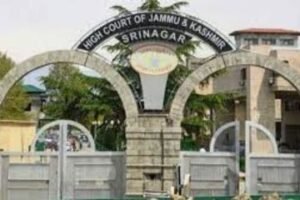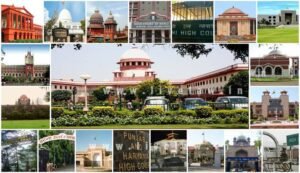Governor Can Exercise Pardon Power Even If Prisoner Has Not Undergone 14 Years Imprisonment
Case: State of Haryana vs. Rajkumar @ Bittu
Coram: Justices Hemant Gupta and AS Bopanna
Case No: CrA 721 OF 2021
Court Observation: “Thus, the power under Article 161 of the Constitution can be exercised by the State Governments, not by the Governor on his own. The advice of the appropriate Government binds the Head of the State. No separate order for each individual case is necessary but any general order made must be clear enough to identify the group of cases and indicate the application of mind to the whole group. Therefore, the policies of the State Government are composite policies encompassing both situations under Article 161 of the Constitution and Sections 432, 433 and 433-A of the Code. The remission under Article 161 of the Constitution will override Section 433-A of the Code, if the State Government decides to be governed of its constitutional power.”
“The State Government can frame a policy of grant of remissions either under Section 432 of the Code or under Article 161 of the Constitution. The Governor continues to exercise the power of commutation and release under Article 161 of the Constitution, notwithstanding Section 433-A of the Code. The action of commutation and release can thus be pursuant to a governmental decision and the order may be issued even without the Governor’s approval. However, under the Rules of Business and as a matter of constitutional courtesy, it may seek approval of the Governor, if such release is under Article 161 of the Constitution.”
“Section 433-A of the Code starts with a non-obstante clause restricting the right of the appropriate Government, to suspend the sentence of imprisonment for life imposed on conviction of a person for an offence for which death is one of the punishments provided by law, that such person shall not be released from prison unless he has served at least 14 years of imprisonment. Therefore, the power of the appropriate Government to release a prisoner after serving 14 years of actual imprisonment is vested with the State Government. On the other hand, the power conferred on the Governor, though exercised on the aid and advice of the State, is without any restriction of the actual period of imprisonment undergone by the prisoner. Thus, if a prisoner has undergone more than 14 years of actual imprisonment, the State Government, as an appropriate Government, is competent to pass an order of premature release, but if the prisoner has not undergone 14 years or more of actual imprisonment, the Government, is competent to pass an order of premature release, but if the prisoner has not undergone 14 years or more of actual imprisonment, the Governor has a power to grant pardons, reprieves, respites and remissions of punishment or to suspend, remit or commute the sentence of any person de hors the restrictions imposed under Section 433-A of the Constitution. Such power is in exercise of the power of the sovereign, though the Governor is bound to act on the aid and advice of the State Government.”
“There is nothing illegal or improper to seek approval of the Hon’ble Governor in all cases but in the cases where the prisoner has not undergone 14 years of actual imprisonment falling within scope of Section 433-A of the Code, it is for the Hon’ble Governor to exercise the power conferred under Article 161 of the Constitution, though on the aid and advice of the State Government. We find that clause (b) of the policy dated 12.4.2002 provided for the cases of the prisoners to be considered after completion of 10 years of actual sentence including undertrial period provided the total period of such sentence including remission is not less than 14 years. The remissions not contemplated by Section 433-A of the Code, the power to remit or commute sentence can be exercised by the Governor in exercise of the power conferred under Article 161 of the Constitution.”
[doc id=7546]
Previous Judgments
Supreme Court: State Cannot Plead Financial Burden To Deny Salary For Legally Serving Doctors
Writ Jurisdiction Not For Deciding ‘Hotly Disputed Questions Of Facts’, Reiterates Supreme Court




